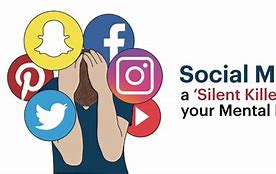
Okay, here’s an opening paragraph about mental health issues with social media that incorporates SEO elements and the quirky punctuation style you requested:
Social media has become an integral part of modern life , connecting people across continents and facilitating instant communication . However, with its rise has come a darker side: a growing concern over its impact on mental health. While social media offers a platform for connection and sharing, it can also foster feelings of inadequacy, envy, and comparison. Scrolling through seemingly perfect lives – curated feeds of flawless photos and idyllic vacations – can leave users feeling inadequate and anxious. This relentless exposure to others’ carefully constructed online personas can fuel social comparison, leading to negative self-perceptions and a distorted view of reality . Add to this the potential for cyberbullying , online harassment , and the constant pressure to maintain an idealized image, and it’s no wonder mental health issues are increasingly linked to excessive social media use.
The consequences can be significant, ranging from low self-esteem and depression to increased anxiety and even suicidal thoughts. It’s vital to recognize the potential negative effects of social media and to practice healthy engagement strategies. The question then becomes: how can we navigate the complexities of social media while protecting our mental well-being ? . This article aims to delve deeper into the relationship between social media and mental health , examining the contributing factors, warning signs, and steps individuals can take to maintain their psychological well-being in a digitally driven world.
Social Media and Mental Health: Navigating the Digital Landscape
The rise of social media has undeniably changed the way we connect, communicate, and consume information. While it offers numerous benefits, such as fostering connections and providing access to information, it also presents a unique set of challenges, particularly when it comes to our mental health.
Related Post : mental health ig accounts
The Growing Connection Between Social Media and Mental Health
Social media platforms have become an integral part of our daily lives. From sharing updates to consuming news, these platforms offer a window into the lives of others and a platform for self-expression. However, the constant bombardment of curated text and idealized portrayals can significantly impact our mental wellbeing.
What is Social Media?
Social media refers to online platforms that allow users to create profiles, connect with others, share text, and interact in various ways. Popular examples include Facebook, Instagram, Twitter, and TikTok.
How Does Social Media Impact Mental Health?
The influence of social media on our mental health is multifaceted and often complex. The way we interact with these platforms can contribute to a scope of challenges, including:
The Dark Side of Social Media: Cyberbullying
Cyberbullying, a form of online harassment, has become an alarming issue, often leaving victims feeling isolated, anxious, and depressed.
The Impact of Social Media on Mental Health
The constant exposure to curated text and idealized portrayals can negatively impact our self-esteem and mental well-being.
- Social Comparison and Body Image Issues: Scrolling through carefully crafted profiles can lead to feelings of inadequacy and dissatisfaction with our own lives and appearance. The constant comparison with others can fuel body image issues and contribute to low self-esteem.
- FOMO (Fear of Missing Out) and Anxiety: The constant stream of updates and experiences shared on social media can lead to a persistent feeling of missing out, triggering anxiety and a sense of urgency to constantly be “in the know.”
- Addiction and Dependence on Social Media: The design of social media platforms, with their reward systems and notification attributes, can make it difficult to disengage, leading to excessive use and addiction.
Understanding the Psychology Behind Social Media’s Impact
The psychological mechanisms behind social media’s impact on mental health are complex but involve several key factors:
- Dopamine Release and Social Validation: Social media platforms often utilize reward systems, such as likes, comments, and shares, that trigger the release of dopamine, a neurotransmitter associated with pleasure and reward. This can lead to a cycle of seeking validation and approval, which can become addictive.
- Cognitive Distortions and Negative Self-Talk: The constant exposure to idealized portrayals on social media can create cognitive distortions, leading to negative self-talk and feelings of inadequacy. We may compare ourselves to others, neglecting our own strengths and achievements.
The Rise of Cyberbullying
Cyberbullying is a significant concern, as it can have severe psychological consequences.
- What is Cyberbullying? Cyberbullying involves the use of electronic communication to bully or harass another person. This can include sending threatening messages, spreading rumors, sharing embarrassing photos or videos without consent, or publicly humiliating someone.
- The Psychological Effects of Cyberbullying: Cyberbullying can have a devastating impact on mental health, leading to anxiety, depression, isolation, low self-esteem, and even suicidal thoughts.
- How to determine and Report Cyberbullying: It’s crucial to recognize the signs of cyberbullying and report it to the appropriate authorities. If you or someone you know is experiencing cyberbullying, seek support from trusted adults, school officials, or online resources.
Strategies for Protecting Your Mental Health on Social Media
While social media can be a source of negativity, it’s possible to use it in a way that promotes well-being.
- Setting Boundaries and Limits: Setting clear boundaries on social media application is essential. Limit screen time, establish specific times for social media engagement, and take breaks from your devices.
- Mindful Social Media Use: Approach social media with intention and mindfulness. Be aware of the text you consume and how it makes you feel. Avoid comparing yourself to others, focus on positive interactions, and curate your feed to align with your values.
- Seeking Help and Support: If you’re struggling with social media’s impact on your mental health, don’t hesitate to seek help. Talk to a trusted friend, family member, therapist, or counselor.
Conclusion: Finding Balance in the Digital Age
Navigating the digital landscape requires a conscious effort to protect our mental health. By understanding the potential pitfalls and adopting healthy habits, we can use social media in a way that enhances our lives without compromising our well-being.
Tips for Healthy Social Media Use
- Be Mindful of Your Time: Track your social media application and set limits to avoid excessive time spent online.
- Curate Your Feed: Follow accounts that inspire and uplift you, and unfollow accounts that trigger negativity or insecurity.
- Focus on Real-Life Connections: Prioritize real-life relationships over online interactions.
- Practice Gratitude: Take time to appreciate the positive facets of your life and express gratitude for the people and experiences you value.
- Seek Professional Help When Needed: If you’re struggling with mental health issues related to social media, don’t hesitate to seek professional support from a therapist or counselor.
The key to a healthy relationship with social media lies in finding balance. By utilizing these strategies and prioritizing our well-being, we can navigate the digital landscape with confidence and protect our mental health in an increasingly interconnected world.






